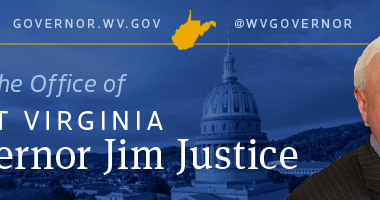By Phil Kabler
For The West Virginia Press Association
CHARLESTON, W.Va. — Taking advantage of legislators’ return to Charleston for the first three-day legislative interim meetings of the year, Gov. Jim Justice used the opportunity to call a brief special session.
However, the special session call may have been more notable for what it didn’t include than what it did.
Justice did not include legislation to create a state-managed banking system needed to proceed with the state’s medical marijuana law, which is set to go into effect July 1, 2019 – even after House Democrats launched an on-line petition urging him to add the bill to the agenda.
State Treasurer John Perdue has notified the governor and legislators that without the legislation, banking institutions that do business with the state will not handle financial transactions involving medical marijuana – including application fees for licenses to become growers, processors, or dispensaries that the state had intended to begin accepting shortly.
Although the two-day special session ended without addressing the matter, legislators were attempting to take the rare step to petition themselves into special session. Under the state Constitution, the governor is obligated to call the Legislature into session if 3/5ths of the members of both houses demand it.
Before the session ended, Sen. Mike Romano, D-Harrison, displayed a petition with the necessary 21 senators’ signatures, while Delegate Mike Pushkin, D-Kanawha, was attempting to secure the signatures of 60 delegates.
“I would think the governor would take this as a clear signal, and call us in,” Pushkin said. “The fact the Senate was able to get 3/5ths of its members to sign, and we’re getting close to 3/5ths should alert the governor that this is a pressing issue that needs to be addressed.”
House Speaker Tim Armstead, R-Kanawha, has argued that passage of a state law setting up a state banking system to handle marijuana transactions would not resolve federal banking laws that bar those transactions.
Another issue left off the governor’s call was any proposal to amend the state’s new sports betting law to pay a portion of wagers to professional sports leagues in the form of an integrity fee.
While the Legislature soundly rejected the fee when passing the sports betting bill in the regular session, Justice has continued to advocate for it, even staging a controversial closed-door stakeholders meeting at state Lottery headquarters to try to work out a deal.
“I think there’s real benefit always to partnering with people, rather than fighting with people,” Justice said at the time, dismissing talk of potential conflicts of interest since his Greenbrier resort hosts NFL and NBA training camps as well as a PGA Tour golf tournament as being “so much garbage.”
With those issues off the table, legislators passed nine bills in the special session, the most notable creating a new Department of Arts, Culture and History (HB101).
Passage of that bill came exactly 72 days after the Legislature voted to eliminate the Department of Education and the Arts, leading some legislators to question if they were replacing one bureaucracy with another.
However, proponents of the governor’s proposal said the bill merely elevates the current commissioner of Culture and History into a new title of curator of Arts, Culture and History, with no increase in salary or new staff.
“The governor wanted to make it very clear that the arts has a strong voice in his administration, and that’s what this legislation is trying to address,” said House Education Chairman Paul Espinosa, R-Jefferson.
The new legislation creating the Department of Arts, Culture and History takes effect on June 8, the date that the Department of Education and the Arts will be dissolved, under HB4006, which passed the Legislature on March 10.
That led some legislators to question whether the elimination of Education and the Arts was more about politics than cost savings, since at the time the bill passed, the department secretary was Gayle Manchin, wife of U.S. Sen. Joe Manchin, D-W.Va., who is up for re-election this fall.
“It makes one wonder if it was just aimed at the head of the department we eliminated,” Pushkin commented.
Other legislators raised concerns whether the Educational Broadcasting Authority and the state Library Commission, which were set to become independent executive branch agencies on June 8, would be placed under the new bureaucracy.
Proponents, however, said that under the new law, the Department of Arts, Culture and History will simply provide administrative support to the two agencies, and that they will otherwise remain independent, and will retain their own governing boards.
The bill passed the House 73-20, and passed the Senate 28-1, with Sen. Ed Gaunch, R-Kanawha, the lone “no” vote.
Legislators also passed a bill making a new law increasing death benefits for beneficiaries of emergency personnel killed in the line of duty from $50,000 to $100,000 retroactive to Jan. 1 in order to benefit the families of two members of the Pratt Volunteer Fire Department killed in March in an accident while responding to a wreck on the West Virginia Turnpike (HB102).





